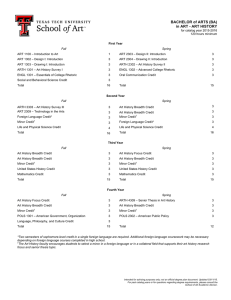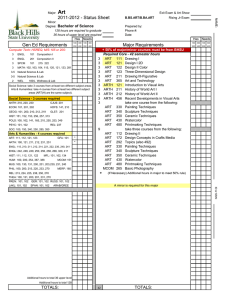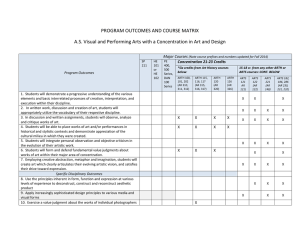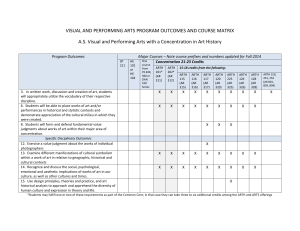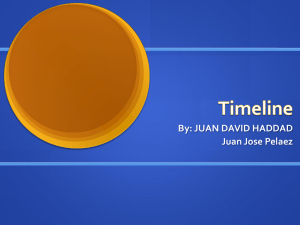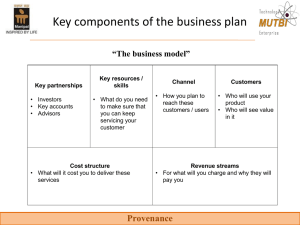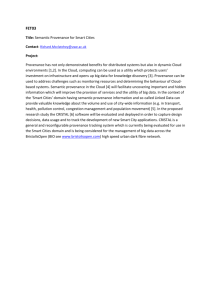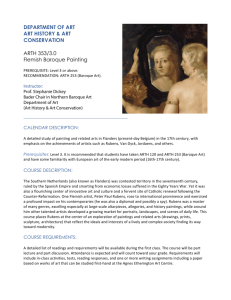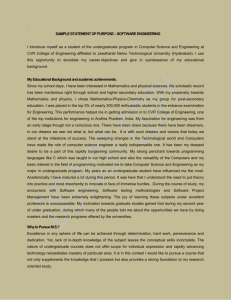Assessment Scheme for Undergraduate Education
advertisement
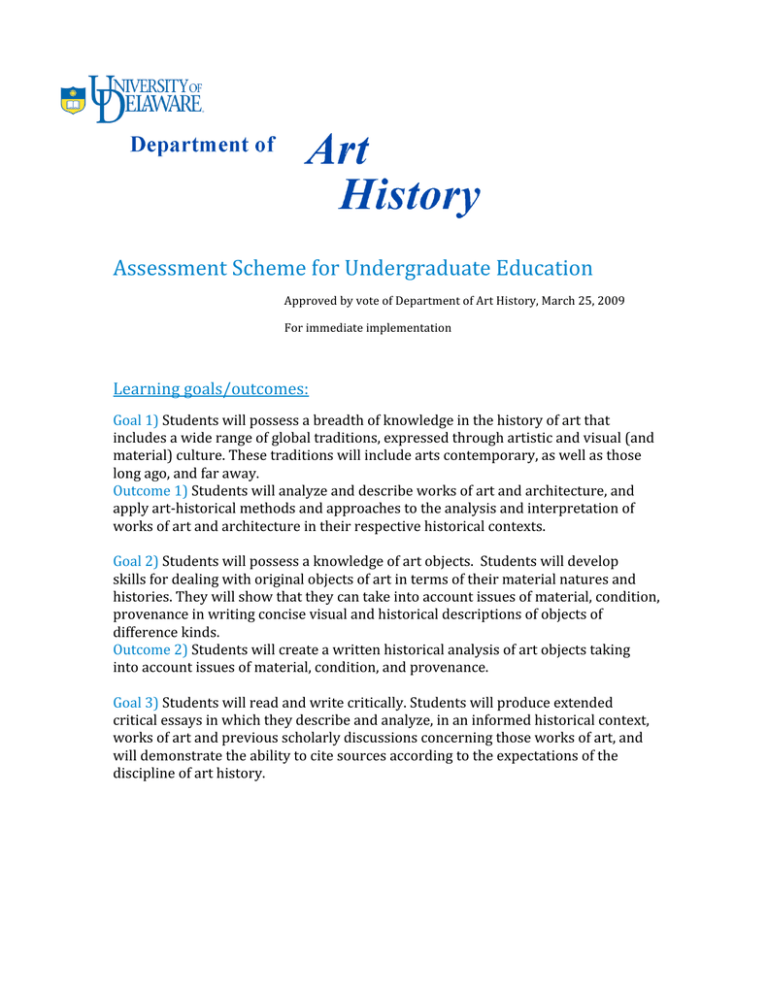
Assessment Scheme for Undergraduate Education Approved by vote of Department of Art History, March 25, 2009 For immediate implementation Learning goals/outcomes: Goal 1) Students will possess a breadth of knowledge in the history of art that includes a wide range of global traditions, expressed through artistic and visual (and material) culture. These traditions will include arts contemporary, as well as those long ago, and far away. Outcome 1) Students will analyze and describe works of art and architecture, and apply art‐historical methods and approaches to the analysis and interpretation of works of art and architecture in their respective historical contexts. Goal 2) Students will possess a knowledge of art objects. Students will develop skills for dealing with original objects of art in terms of their material natures and histories. They will show that they can take into account issues of material, condition, provenance in writing concise visual and historical descriptions of objects of difference kinds. Outcome 2) Students will create a written historical analysis of art objects taking into account issues of material, condition, and provenance. Goal 3) Students will read and write critically. Students will produce extended critical essays in which they describe and analyze, in an informed historical context, works of art and previous scholarly discussions concerning those works of art, and will demonstrate the ability to cite sources according to the expectations of the discipline of art history. Learning opportunities: 1)[for Goal 1] Required range of courses. Students must take at least one course at the 200‐level or above in four of the following five areas: Before the year 1400; 1400‐1700; 1700‐1900; 1900‐present; and African, Asian, Islamic or Latin American art. 2)[for Goal 2] Working with art objects. Students will work in museum and other settings, writing catalogue entries that include consideration of material, condition, provenance, scale, and other factors. ARTH 301, Materials and Methods in Art History, is a required course for all majors, to be taken in the junior year or before, and involves precisely such experience. Students will also be urged to enroll in the internship program in the University Galleries, and/or work as interns or volunteers in local and regional museums. 3)[for Goal 3] All students must take at least two small‐group discussion courses (seminars) that will include significant critical writing assignments. One of these must be ARTH 301, which should be taken in the junior year or before, and the second will be a required seminar in the senior year. Learning Assessment: The evaluation mechanism will be that each art history major compiles a portfolio of their work in art history, including a) a list of all art history courses that they have taken, and for each one an indication of the papers that they have written, with copies of those papers when available, b) their ARTH 301 written assignments, including at least one catalogue entry and at least one critical paper, c) their senior seminar paper, d) their senior thesis, if written. After graduation the portfolios will be evaluated by the faculty Assessment Committee (the Director of Undergraduate Studies and designated assistance) who will rate them (probably A, B, C, etc.) in terms of the degree to which the portfolios demonstrate that the department’s learning goals were achieved. Using results: Each year, the Assessment Committee will write a report of their findings and recommendations for consideration by the entire faculty, and the report will be discussed in a meeting of the entire faculty. When we see areas that need more work, we will address that need as it becomes clear. One primary focus will be to see whether the undergraduate curriculum, recently revised, is in fact producing the breadth of encounters that we believe important, another will be the issue of engagement with original works of art, and another and central issue will be the development of critical writing skills.
